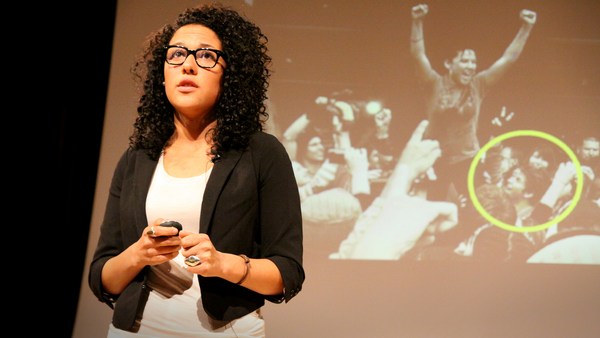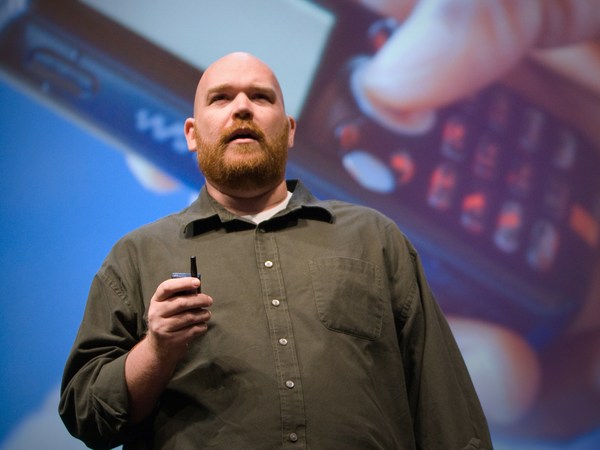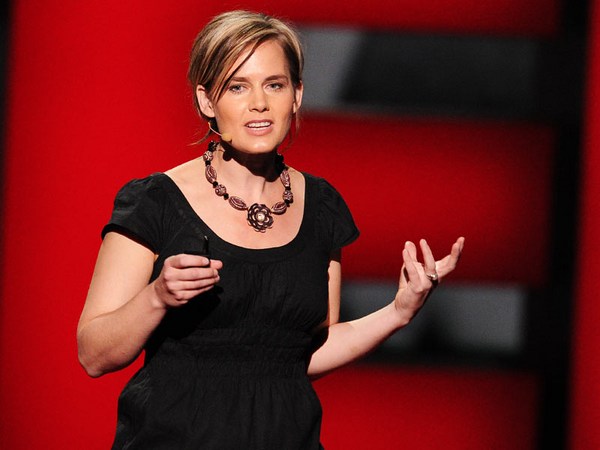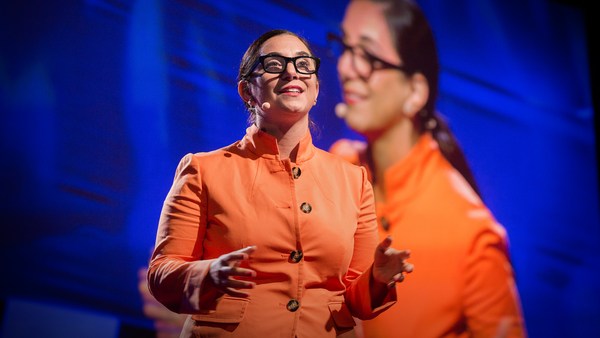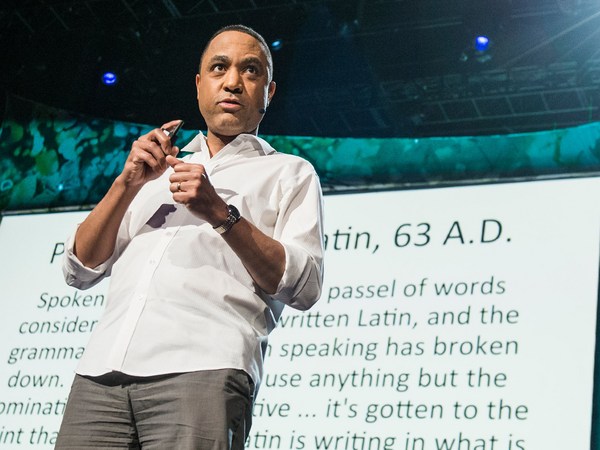To most of you, this is a device to buy, sell, play games, watch videos. I think it might be a lifeline. I think actually it might be able to save more lives than penicillin.
Texting: I know I say texting and a lot of you think sexting, a lot of you think about the lewd photos that you see -- hopefully not your kids sending to somebody else -- or trying to translate the abbreviations LOL, LMAO, HMU. I can help you with those later. But the parents in the room know that texting is actually the best way to communicate with your kids. It might be the only way to communicate with your kids. (Laughter) The average teenager sends 3,339 text messages a month, unless she's a girl, then it's closer to 4,000. And the secret is she opens every single one. Texting has a 100 percent open rate. Now the parents are really alarmed. It's a 100 percent open rate even if she doesn't respond to you when you ask her when she's coming home for dinner. I promise she read that text. And this isn't some suburban iPhone-using teen phenomenon. Texting actually overindexes for minority and urban youth. I know this because at DoSomething.org, which is the largest organization for teenagers and social change in America, about six months ago we pivoted and started focusing on text messaging. We're now texting out to about 200,000 kids a week about doing our campaigns to make their schools more green or to work on homeless issues and things like that. We're finding it 11 times more powerful than email. We've also found an unintended consequence. We've been getting text messages back like these. "I don't want to go to school today. The boys call me faggot." "I was cutting, my parents found out, and so I stopped. But I just started again an hour ago." Or, "He won't stop raping me. He told me not to tell anyone. It's my dad. Are you there?" That last one's an actual text message that we received. And yeah, we're there. I will not forget the day we got that text message. And so it was that day that we decided we needed to build a crisis text hotline. Because this isn't what we do. We do social change. Kids are just sending us these text messages because texting is so familiar and comfortable to them and there's nowhere else to turn that they're sending them to us. So think about it, a text hotline; it's pretty powerful. It's fast, it's pretty private. No one hears you in a stall, you're just texting quietly. It's real time. We can help millions of teens with counseling and referrals. That's great. But the thing that really makes this awesome is the data. Because I'm not really comfortable just helping that girl with counseling and referrals. I want to prevent this shit from happening. So think about a cop. There's something in New York City. The police did it. It used to be just guess work, police work. And then they started crime mapping. And so they started following and watching petty thefts, summonses, all kinds of things -- charting the future essentially. And they found things like, when you see crystal meth on the street, if you add police presence, you can curb the otherwise inevitable spate of assaults and robberies that would happen. In fact, the year after the NYPD put CompStat in place, the murder rate fell 60 percent. So think about the data from a crisis text line. There is no census on bullying and dating abuse and eating disorders and cutting and rape -- no census. Maybe there's some studies, some longitudinal studies, that cost lots of money and took lots of time. Or maybe there's some anecdotal evidence. Imagine having real time data on every one of those issues. You could inform legislation. You could inform school policy. You could say to a principal, "You're having a problem every Thursday at three o'clock. What's going on in your school?" You could see the immediate impact of legislation or a hateful speech that somebody gives in a school assembly and see what happens as a result. This is really, to me, the power of texting and the power of data. Because while people are talking about data, making it possible for Facebook to mine my friend from the third grade, or Target to know when it's time for me to buy more diapers, or some dude to build a better baseball team, I'm actually really excited about the power of data and the power of texting to help that kid go to school, to help that girl stop cutting in the bathroom and absolutely to help that girl whose father's raping her. Thank you. (Applause)
